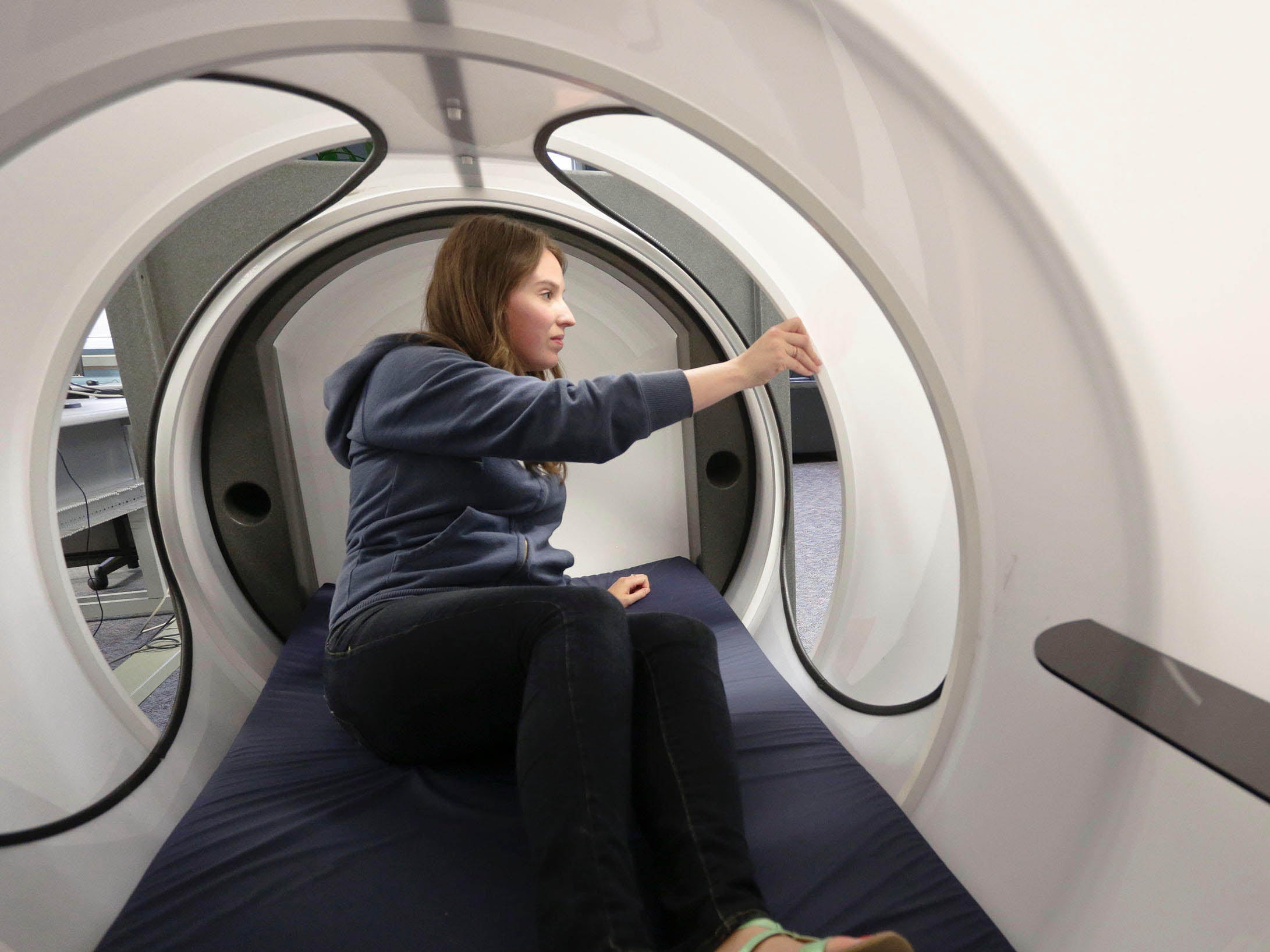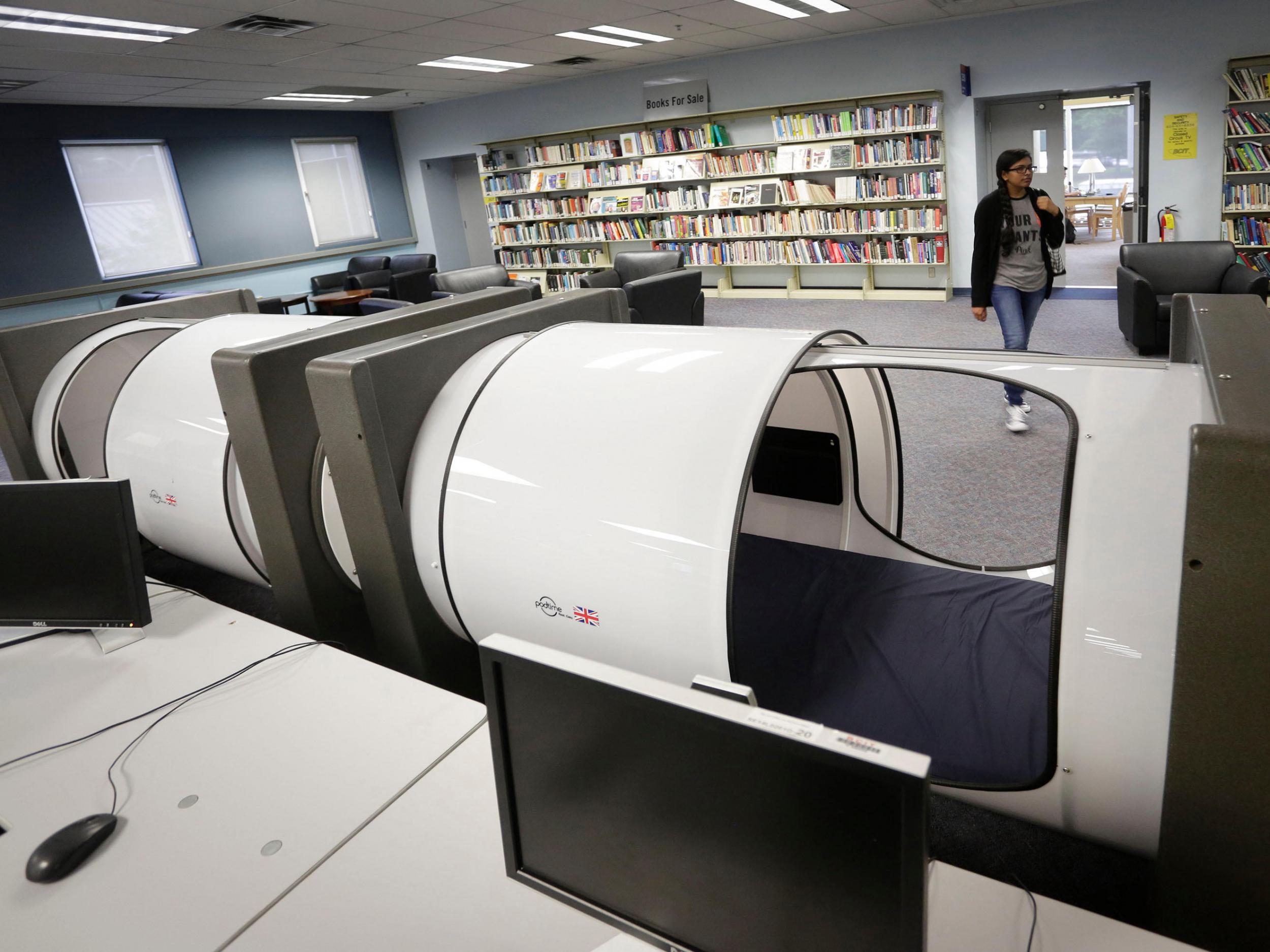Why consumers need to wake up to the fact that sleeponomics lacks research
Our technologically-fuelled lives are exhausting us, but they are also driving the market of sleep. Jessica Brown investigates whether the commodification of sleep is just a fad, or if the booming industry really can help us get some shut-eye

In these wellness-obsessed times, the tried-and-tested basics of fruit, vegetables, sleep and exercise just aren’t enough anymore.
From the moment we wake up and scroll through social media, we’re inundated with ads tempting us with lotions, drinks and devices that promise to make us mentally and physically healthier, many of which have questionable claims. (Detox juices and appetite-suppressing lollipops, I’m looking at you.)
The latest commodity we’re being persuaded to invest in is products to help us sleep, fuelled by a booming “sleeponomics” industry in a sleep-deprived South Korea. But while it may seem like we’re getting a lot less shut-eye than we used to in the UK, according to most research we’re not getting any less now than we have done in recent history.
It might feel that way, since we’re all a lot more anxious and stressed these days, tuned into the blue light of our devices until late at night, and in increasingly demanding jobs where we feel obliged to answer emails 24/7.
Work has a huge role to play in how little sleep we’re getting; lines are becoming blurrier between work and home, we’re travelling more and commuting further, and working more overtime – the nine to five job feels like a thing of the past.
But while technology and work are making us tired, they’re also driving the market for sleep. No longer will a good mattress and some chamomile tea suffice when we can cuddle up to sleep robots, use devices to measure our sleep, assess the lighting and temperature of our bedrooms, and adjust the firmness of our beds – all through an app.
Mattresses aren’t just mattresses anymore – they’re a lifestyle, and sleep is an industry, targeting everyone from the mildly tired to the insomniacs. London’s even hosting the capital’s only sleep exhibition next month, with consultations and talks dedicated to the art of sleeping well.
While some may argue it’s good to have a market for all our sleep ailments, an industry steeped in promises leaves potential for disappointment. And for an industry so lacking regulation, this potential is high.
Dreem, a headband that promises to make you go to sleep faster, for example, states on its website it has conducted “internal research”, however, this research doesn’t seem to be published anywhere, and there’s a very slim chance that it’s peer-reviewed.

As one research paper published by US-based scientists points out, the most popular consumer sleep technologies, sleep tracking apps worn on the wrist as you sleep and alarm clocks such as Sleep Cycle, may actually cause sleep disruption from noise and light pollution. “Many sleep tracking apps require user activation and device placement on the mattress to monitor sleep,” the paper states.
Journalist Caroline Christie describes herself as a terrible sleeper, and says she stopped using a sleep app after it started making her anxious and reminding her when she was sleep deprived. “It also made me quite competitive, wanting to make sure I kept getting the right numbers of hours,” she says. “I’ve come to accept it all comes down to routine, and doing what it takes to make you feel relaxed and able to switch off.”
There’s no such thing as sleep qualification in academia. I’m talking to public health charities and bodies who give qualifications to do something about it
Another concern, the paper states, is the lack of validation studies, FDA approval, and endorsement from American Academy of Sleep Medicine-accredited sleep facilities or sleep specialists. “Practically speaking, lack of validation may be premeditated by some developers, who run the risk of their technology being debunked or labelled inferior if compared to clinical standards,” it states.
And in terms of their reliability of measuring sleep or diagnosing sleep disorders, a wrist device hardly compares to the standards of a clinical sleep evaluation; a process which can involve being constantly monitored by technologists, who use an electrocardiogram with more than 20 sensors to record breathing, brain and heart activity over a full night.
Christie says, however, that she invested in some products recently to help her sleep and drown out the sounds of her flatmates – and they seem to be helping. “About six months ago, I invested in a Bluetooth eye mask that helps me block out surrounding noise and light. Now, it’s part of my sleep routine and helps my body realise it’s time to sleep. It’s comforting, easy to use, and helps me disconnect and drift off.”

However, sleep expert James Wilson, who advises workplaces, sports teams and families on their sleep, describes the market for sleep as “quite superficial,” and the lack of research, he says, has led to some dodgy practices: “There’s lots of snake oil being sold, products making claims they can’t prove. Some of these products have a lot to answer for – they don’t give a solution.”
Wilson argues that part of the problem is that the industry doesn’t have a professional body, and needs more science to help people like him become more credible. He spent his teens suffering with insomnia and in work to help others in similar situations, but found a lack of options down an academic route and started his career working at a charity that supports families with children that have sleeping problems.
“There’s no such thing as sleep qualification in academia. I’m talking to public health charities and bodies who give qualifications to do something about it, I want there to be a practical qualification,” he says.
While there are tens of thousands of nutritionists in the UK, there are very few sleep experts, and Wilson argues medical professionals aren’t trained enough to properly recognise and diagnose sleep problems.
“Medical students don’t have much sleep knowledge, but sleep is fundamental to life. If you had a condition that meant your body couldn’t take in nutrients, you’d be sent straight to hospital. You can go longer without food than you can with sleep.”
Steve Robinson, founder of online shop We Sell Sleep, says while its products comes from research, including the personalised, 45-page sleep report customers can get for £20, a lot also comes from common sense. Some think his products, including £215 light therapy glasses and magnesium supplements, are a load of nonsense, while others, he says, swear by them – including one customer who said a sleep mist solved his sleep problems.
But as the industry booms, the science, he argues, will catch up. “The core of sleep science isn’t as evolved as other areas, but people are getting more obsessed with it, and once something gets commercial, there tends to be more money available for research.”
And helping the industry boom, despite evidence suggesting work is the biggest stressor keeping us awake at night, are workplaces. Nap pod manufacturer Podtime has sold nearly 500 nap pods in 19 countries since launching eight years ago, predominantly to employers including Facebook and Nestle, whom director Paul Grindrod says are slowly coming around to the idea of napping on the job.
But it took a while; the company didn’t sell a single pod in its first few years, and one local authority cancelled its order with Podtime on the request of its ruling authority due to the stigma attached to napping at work. “We’re gradually overcoming this resistance, as people see the benefits to productivity.There was a time when office buildings didn’t have showers, but now many do,” he says. Grindrod, who likes to read his Kindle inside the pod, says the company doesn’t hire any scientists or commission any research, and tells clients to go online to see the benefits of sleep more generally.

Wilson, however, says installing nap pods is “one of the worst things you can do,” and can exacerbate insomnia. “We have two internal systems that manage sleep: light and dark, and our internal sleep pressure, which counts down to bedtime from the moment we wake up,” he says.
“Naps knock bedtime back. Using a nap pod sounds like the right thing to do, and people are doing it because they don’t know any better, but it’s not right for everyone”.
Wilson argues that this is why a lot of the advice on sleep isn’t relevant – because it comes down to each individual and how they sleep best. Headlines warning us that too little sleep causes almost every health problem under the sun aren’t helpful either, he argues, because one of the biggest reasons we can’t sleep is stress.
“Warnings about how bad sleep is killing us means we wake up stressed in the middle of the night and can’t go back to sleep. We need to get people more relaxed about sleep,” he says. While it’s a nice sentiment, the booming sleep industry is likely to keep insisting there’s a problem to solve, especially if the beauty industry and the “help” it offers consumers to “fix” blackheads and cellulite, is anything to go by.
Robinson likens the quality of our sleep to the efforts we put into other areas of life: “You could be fanatical about it and see a big improvement, or you can make some small differences and see some improvements. It’s the same as diet and exercise, it comes with a level of discipline.”
The difference is, however, being sold the idea that we can solve our sleep problems with just a bit of effort and a lot of cash is deceiving. While we can all take steps to help us, it’s unlikely that a pillow mist or 20 minutes in a nap pod at work will cure a sleep disorder, and companies telling us they can will only make us more stressed out when we’re wide awake at 4am. How do they sleep at night?
Join our commenting forum
Join thought-provoking conversations, follow other Independent readers and see their replies
Comments
Bookmark popover
Removed from bookmarks